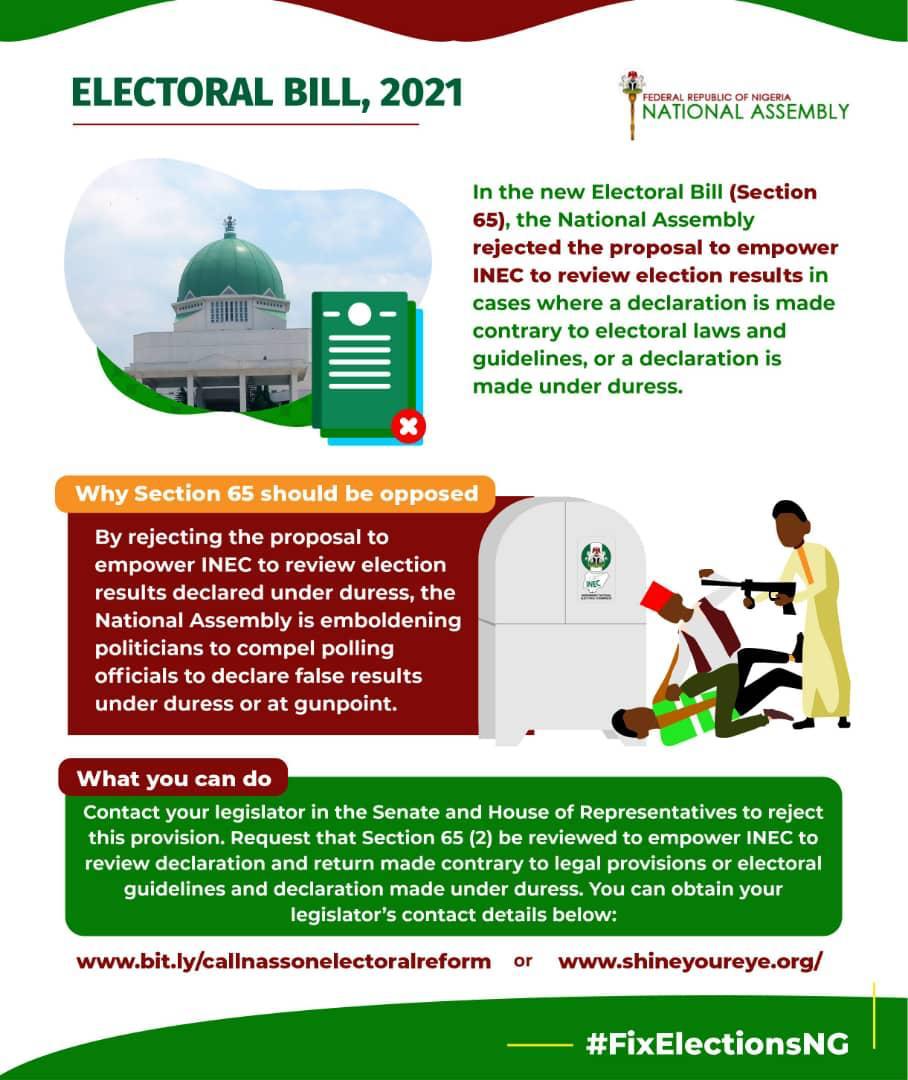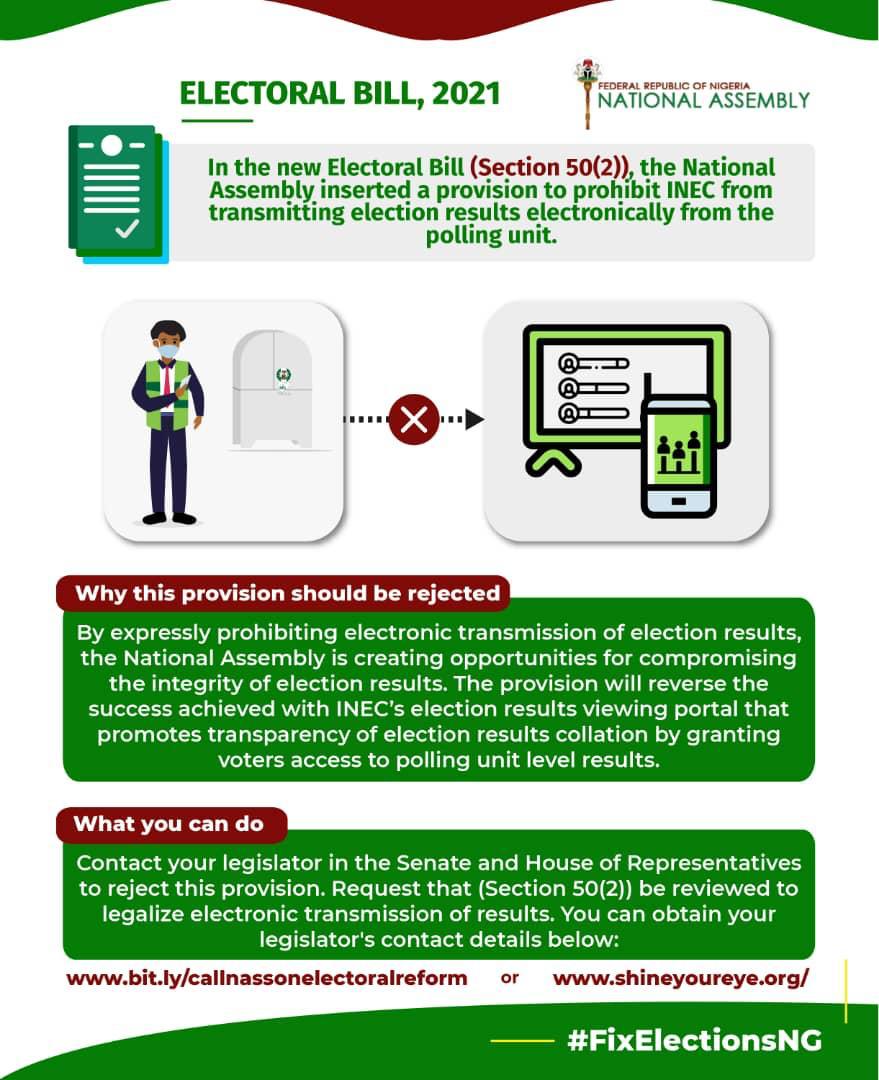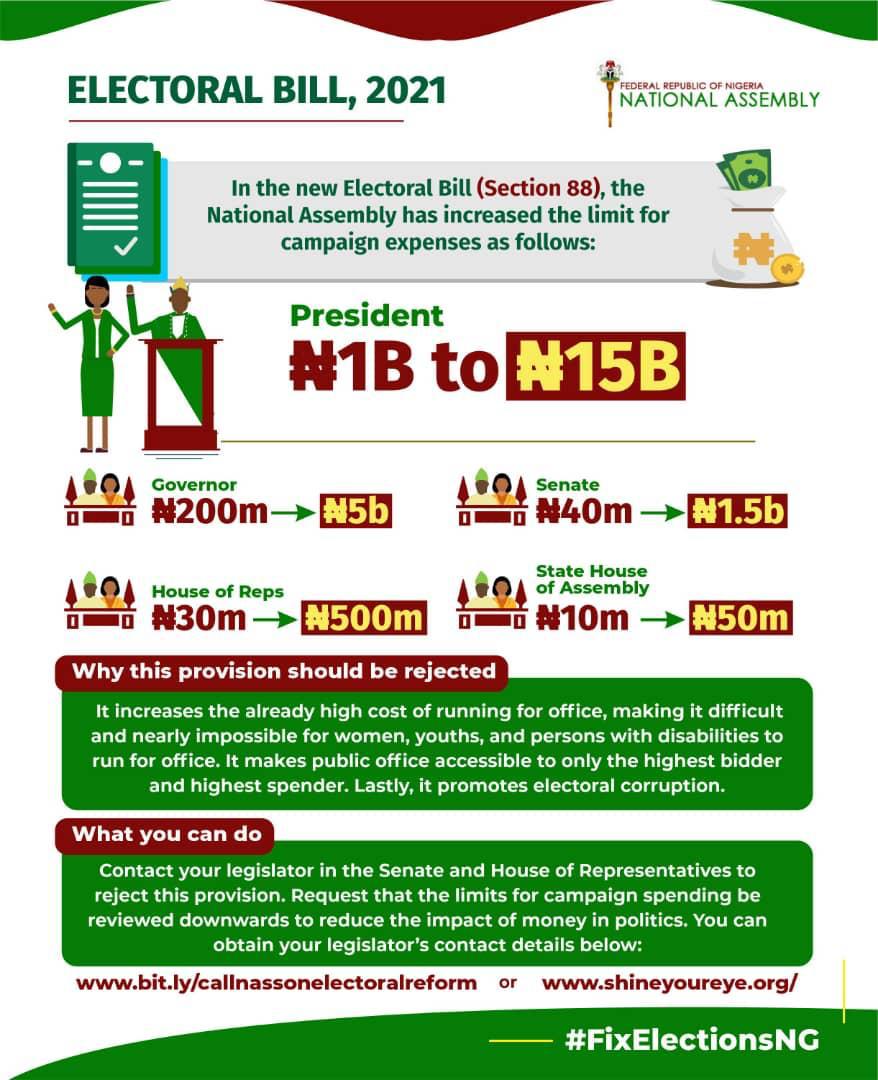News
Why the Feminist Womanifesto Group wants the original provisions of the Electoral Bill 2021 to be reinstated

The National Assembly is expected to adopt the Electoral Bill 2021 on Tuesday, July 6, 2021, which intends to abolish the Electoral Act No. 6 2010 and implement a new Act.
It is also expected to address concerns about INEC’s use of contemporary technology in the election process, including voter accreditation, electronic voting, and electronic transmission of polling unit results.
President Muhammadu Buhari rejected a previous bill enacted by the Saraki-led 8th National Assembly three times.
The bill was revived in the 9th Assembly, and a joint committee on INEC (composed of senators and representatives) was established to work on it.
The claimed final copy of the Bill, on the other hand, has been tampered with and is incompatible with the authorized version of the Bill, which represents citizens’ demands.
The following are some of the major provisions of the altered Bill that are especially concerning:
- The prohibition of electronic transmission of results (Section 50(2)).
- The removal of INEC’s power to review results declared under duress or in contravention of electoral laws and guidelines (Section 65).
- The drastic increase in the limits for campaign expenses from N1 billion to N15 billion for President, N2 million to N5 billion for Governor, N40 million to N1.5 billion for Senate, N30 million to N500 million for House of Representatives, and N10 million to N50 million for State House of Assembly (Section 88).
These measures have the potential to jeopardize election openness and fairness. Women are particularly affected for two reasons:
- Women rarely get the tickets for the ‘big parties’ and often their hope lies with the smaller parties.
- Women typically have less financial resources than their male counterparts.
The 2019 general elections give an excellent illustration of women’s reliance on smaller parties since there was an increase in the number of women candidates compared to 2015, but a drop in the number of women who actually were elected.
One reason for the difference, according to research by the Center for Democracy and Development, is that many of the women candidates ran on the platforms of smaller parties, which meant they had fewer prospects of winning. Increasing election fairness and transparency would assist to level the playing field by reducing the advantages that larger parties have over smaller ones.
In turn, women’s electoral chances should improve in a roundabout way.
As a result, the Feminist Womanifesto Group is advocating for the original provisions of the Electoral Bill 2021 to be reinstated to improve women’s political representation. INEC should have the authority to electronically submit results and analyze results submitted under duress to minimize the incidence of election malpractices in our nation.
Smaller parties and female candidates will have a higher chance of winning elections if the dominant political parties and candidates are banned from tampering with election results.
Furthermore, the original campaign spending limitations should be maintained to prevent elections from being won by the highest bidder. This is especially essential for women, who, in comparison to their male colleagues, have less access to financial resources and support.
Finally, because their goals are focused on enhancing election integrity, they will benefit not only women but the whole country. The National Assembly is urged to take action.
Womanifesto wants the Assembly to act quickly to meet these demands and guarantee that the real Bill, not the altered one, is enacted on Tuesday, July 6, 2021.
This press release has been signed by over 200 organizations and people who are members of the Feminist Womanifesto Group.
















